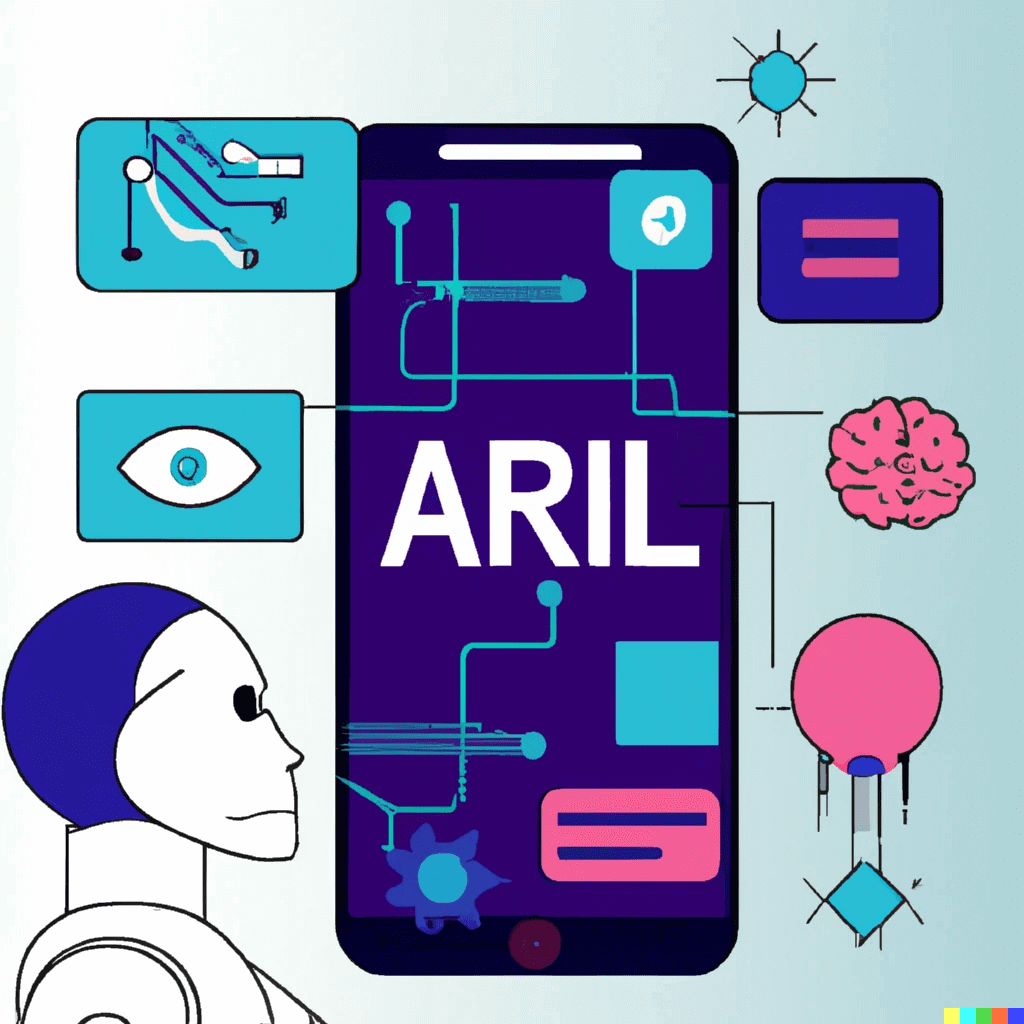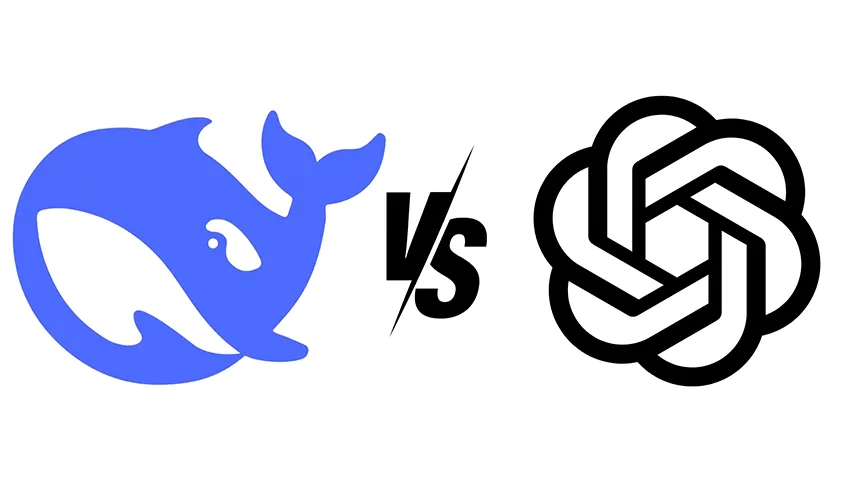Ready for the future? App ideas to create using ChatGPT in 2023
01 Jan 2023 | Right Firms
Related Posts

Feb 2025
Top Programming Languages to Learn in 2025 for High-Paying Jobs
If you are new to software development, knowing where to start is the most challenging part of learning programming. Several hundred programming languages are used daily, each with quirks and challenges. The best news is that as you begin your career as a software developer, you'll start to learn the best coding language for your interests and goals.This blog post will cover the most in-demand programming languages and how to learn them to kickstart a coding career. What is a programming language? A programming language is a set of instructions written in a particular syntax to tell a computer what to do and how to do it. Mastering a programming language will enable you to create software applications, websites, and other digital tools shaping our world. Principal Programming Language Types There are many different programming languages, each with unique advantages and disadvantages, so consider this when choosing the best ones to learn.The main categories of programming languages are as follows: Languages for procedural programming: These languages decompose issues into sequential steps. Typical examples are Pascal, C, Cobol, and BASIC.Functional programming languages focus on altering data structures without changing existing data to provide more predictable results. Some well-known functional languages include Scala and Haskell. Programs in object-oriented programming languages are structured around objects that hold information (properties) and actions (methods). Python, Java, and C++ are well-known examples of this object-based methodology. Scripting and dynamic languages are lightweight programming languages frequently used to add interactivity to web pages or automate processes. Two popular scripting languages are JavaScript and Ruby. Logic programming languages use logic and reasoning to solve problems. They offer a distinct method for solving issues and are frequently employed in applications involving artificial intelligence. Prolog is a well-known example of a logic programming language. Top Programming Languages to Learn in 2025 As more than 700 programming languages are available, you probably want to know which is best to learn. Ultimately, your decision will be influenced by your professional objectives, skill level, and the languages companies use in their workplaces. These are the top 15 programming languages to learn in 2025 to get you started. 1. JavaScript With increasing demand for dynamic web applications, becoming a professional software developer is nearly impossible without learning JavaScript. According to Stack Overflow's 2024 Developer's Survey, JavaScript is the most popular programming language among developers for the eleventh year in a row, with 62% of survey respondents reporting that they had used it the past year. Most of the most visited sites on the web, including Facebook, Twitter, Gmail, and YouTube, use JavaScript to develop interactive web pages and dynamically display content to users. The extensive list of applications makes JavaScript one of the finest programming languages to learn.Major Features: Versatility: JavaScript can be utilised for front-end as well as back-end development.Interactivity: It provides dynamic functionality to web pages, making them engaging and responsive.A large community: The JavaScript community is significant and growing! Those looking to learn it can find extensive online resources, including tutorials, frameworks, and other tools that make learning and troubleshooting easier.Prerequisites: A foundational grasp of HTML and CSS is advised for efficient JavaScript web development.Skills Required: Potential JavaScript programmers should be capable of addressing problems and interested in procedural reasoning, logic, and problem-solving.Platforms: Node.js server-side environments and web browsers. Examples of Use: Developing dynamic web components Constructing dynamic online apps Creating apps that are only one page (SPAs) Including user interfaces and animations JavaScript engineers typically make around $116,340 a year, as per Indeed Oct 2024. 2. Python Python is arguably the most accessible programming language on this list. Its syntax is straightforward and intuitive, particularly for English speakers, since it follows grammar rules. This makes it a favourite among beginners looking for the best programming languages to learn for themselves.Key Features: Readability: Python's simple and concise syntax is similar to natural language, making it more straightforward to learn and maintain. Versatility: It’s widely used in web development, data science, scripting, machine learning, and other applications. Extensive libraries: Thanks to a vast collection of pre-written code (libraries), it’s easy to simplify complex tasks and streamline development with Python. Prerequisites: Programming in Python requires a basic understanding of computer science concepts, which is helpful but not integral. Skills Needed: Python programmers should be solution-focused and interested in structures and data analysis. Platform: All major operating systems (Windows, macOS, Linux) Use Cases: Web development (back-end)Data science and machine learningScripting and automationScientific computingGame development (with frameworks) Average Salary: Python developers earn around $125,102 per year as per Indeed Oct 2024 3. SQL In addition to Python, SQL coding is crucial to effectively using data in web applications and is, therefore, among the best programming languages to learn. While other coding languages are on our list, SQL explicitly allows storing, retrieving, and manipulating data in a given relational database. Key Features: Standardised use: SQL is supported by a majority of database management systems. Declarative ability: Its operation depends on what information to fetch or handle rather than the exact steps. Relational functionality: SQL allows querying and handling information among related tables in a database. Prerequisites: Familiarity with database management concepts is ideal for SQL. Skills Required: SQL programmers must learn data structures, storage, and retrieval. Platform: All major database management systems (e.g., MySQL, PostgreSQL, Oracle) Use Cases: Data retrieval and manipulation in relational databasesMaking reports and data analysisMaintenance and management of databasesIntegration with other programming languages for data-driven applicationsThe average Salary as per the Glassdoor June 2024 is $116,507. 4. Swift Swift has become the popular language for creating contemporary iOS, iPadOS, macOS, watchOS, and tvOS applications. Apple introduced Swift in 2014, a new programming language to develop iOS and macOS applications. Swift has been optimised for performance and built from the ground up to match the realities of modern iOS development, making it one of the best programming languages to learn for aspiring iOS developers. These developers will likely remain in demand as Apple products remain the most profitable mobile app marketplace. Key Features: Modern Design: Swift offers a safe, readable, and expressive syntax for efficient development. Platform Integration: It seamlessly integrates with Apple's development tools and frameworks. Safety Features: Swift emphasises memory and type safety, reducing crashes and errors. Prerequisites: Ideally, those looking to specialise in Apple programming are interested in iOS functionality. Skills Needed: Coders working in Swift should have some existing familiarity with Apple's development tools (Xcode)> Platform: Apple platforms (iOS, iPad, macOS, watchOS, tvOS) Use Cases: Building native iOS, iPad, macOS, watchOS, and tvOS applicationsMaking multimedia applications and computer games for Apple devices Mean Salary: $119,319 (Indeed, Oct 2024) 5. Java Java is still a leader in programming, particularly for enterprise software development. Its write-once, run-anywhere concept and mature environment make it a go-to option for developing large-scale applications such as servers. Key Features: Platform independence: Java code can be executed on multiple operating systems without alteration.Object-oriented functionality focuses on code reusability and maintainability by following object-oriented concepts.Large libraries and frameworks: Java has a healthy collection of libraries and frameworks supporting various development purposes.Prerequisites: Basic notions of coding could be helpful.Skills Required: Analytical minds, object-oriented programming principles, knowledge of major Java libraries and frameworks (in case of higher-level development)Platform: Every central operating system (Windows, macOS, Linux)Applications: Enterprise application construction (web, desktop, mobile with frameworks)Big data processing (Hadoop)Android developmentEmbedded system development Average Salary as per (Indeed, Oct 2024) $91,234 Best Programming Languages to Learn to Fulfill Your Career Aspirations Only you can answer the question of the best programming language to learn for your career aspirations. Your choice should be based on your career interests and whether you want to develop front-end or back-end web-based software. In brief, this is what we have discussed so far: Front-end web development: JavaScript, TypeScriptBack-end web development: JavaScript, TypeScript, Python, Go, Elixir, C#Mobile development: Swift, Java, C#Game development: C#Desktop applications: Java, Python, JavaScript, TypeScriptSystems programming: C, Rust, Go It’s Code Time Computer programming is a fast-changing field; however, the languages above bear much staying power. Learning one or more of them will place you in an excellent position this year and for years. Once you master one programming language, learning a second language will likely be easier since you can draw on existing knowledge.

Feb 2025
Why do 80% of e-commerce startups fail in the first year?
E-commerce is flourishing in its turn, with world online sales reaching an estimated $8.1 trillion by 2026. At the same time, though there is so much potential, almost 80% of e-commerce businesses go bust in their first year. While the success stories of companies such as Amazon, Shopify, and Alibaba dominate the headlines, the reality for most new ventures is less than glamorous. So, why do most e-commerce startups struggle to survive? This blog will uncover the most significant challenges that lead to failure and how partnering with top-rated e-commerce development companies can make a difference. 1. Poor Market Research & Lack of Product Demand Most entrepreneurs enter the e-commerce arena without checking their business concept. Just because something is popular does not mean there is a long-term demand for it. What Goes Wrong? Selling products that lack long-term market demand. Not recognizing the appropriate target audience. Failure to analyze competitors and market trends. Top Companies Conduct thorough market research using tools like Google Trends, SEMrush, and competitor analysis to understand product viability before launching. 2. Ineffective Website Design & Poor User Experience (UX) Your website is the foundation of your online business. Your customers will leave and never return if it's slow, complicated, or complex. Common Problems: Unresponsive design (not mobile-friendly). Slow page load times. Complex checkout procedures result in cart abandonment. You can partner with experienced e-commerce website development firms specialising in platforms such as Shopify, WooCommerce, Magento, and BigCommerce to develop a fast, responsive, and conversion-driven store. 3. Poor Digital Marketing & Weak Branding Even if you have the best product, nobody will purchase it if they are unaware. Most startups collapse as a result of poor branding and poor marketing strategies. Marketing Failures: Ignoring SEO, paid advertising, and email marketing. Failure to utilize social media to engage with the audience. Dependence on paid advertising alone and neglecting organic traffic development. You can also optimise your website with SEO-focused content. Utilize social media, influencer marketing, and retargeting advertisements. Leverage email marketing to generate leads and foster long-term customer relationships. 4. Pricing & Profitability Issues Most e-commerce businesses have poor profit margins due to inappropriate pricing models. Pricing too high sends customers away, but pricing too low results in losses. Pricing Mistakes: Failing to include cost elements such as shipping, advertising, and transaction fees. Overdiscounting results in feasible revenue streams. You can implement competitive pricing models informed by market intelligence and collaborate with e-commerce agencies or consultants to price goods for the highest profitability. 5. Poor Inventory & Supply Chain Management One of the biggest reasons startups fail is inventory mismanagement. Running out of stock or dealing with long delivery times leads to frustrated customers and negative reviews. Common Mistakes: Overstocking or understocking inventory. Partnering with unreliable suppliers. High return rates due to poor product quality. Inventory management software like Shopify’s built-in tools, Zoho Inventory, or TradeGecko can be used to improve. Choose reliable fulfillment partners like Amazon FBA, ShipBob, or third-party logistics providers. 6. Ignoring Mobile Commerce & Omnichannel Strategy Inventory mismanagement is one of the most significant reasons startups fail. Out-of-stock or long delivery times result in unhappy customers and bad reviews. Common Mistakes: Stocking too much or too little inventory. Working with poor suppliers. High return rates because of low product quality. To improve these common mistakes, inventory management software such as Shopify's native tools, Zoho Inventory, or TradeGecko should be implemented. Select solid fulfilment partners like Amazon FBA, ShipBob, or third-party logistics companies. 7. Poor Customer Service & Lack of Trust Poor customer service kills companies. Customers who cannot get your assistance will look for a competitor. Common Service Problems: Long response times to client requests. There is no transparent refund/return policy. Inadequate management of negative feedback. To solve these problems better, you can implement AI chatbots for real-time customer support and provide a transparent refund and return policy. Show customer feedback, trust badges, and secure payment options to gain credibility for your services. 8. Not Partnering with Reputed E-Commerce Companies One of the most common errors e-commerce startups make is attempting everything in-house rather than collaborating with experienced e-commerce development companies. Why Work with Experts? Expert e-commerce agencies assist with site creation, design, and search engine optimisation. Marketing agencies ensure your store reaches the right audience. Tech support teams assist with troubleshooting problems such as website crashes or security issues. RightFirms brings you in touch with highly-rated e-commerce service providers to assist you in establishing, promoting, and growing your business effectively. Final Thoughts: How to Ensure E-Commerce Success? Though 80% of startups fail, the other 20% succeed due to: Carrying out adequate market research. Collaborating with the best e-commerce development firms. Spending on SEO, marketing, and branding. Providing excellent user experience and customer support. Controlling inventory and pricing. To avoid pitfalls and establish a successful e-commerce business, collaborate with reliable e-commerce professionals listed on RightFirms. Get the Best E-Commerce Development & Marketing Experts Today.

Dec 2024
How Cloud Solutions Are Reshaping Mobile App Development?
Mobile app development is one of the most critical elements in modern innovation in the fast-paced world of technology. As reliance on mobile applications is growing across industries, demands on developers to deliver efficient, scalable, and cost-effective apps are increasing. Among the most transformative forces behind this evolution is cloud technology. Cloud solutions have made mobile app development revolutionary and, at the same time, enabled developers to design, deploy, and maintain their apps more efficiently than ever, making it scalable, cost-efficient, and delivering greater value to users. Here is how cloud apps with innovative app development tools are revolutionizing the mobile app development process. Cloud Technology in Mobile Development Cloud technology refers to the utilization of remote servers that are hosted over the internet for the storage, management, and processing of data, thus obliterating the need for local servers or personal devices. This paradigm has changed the way businesses approach app development. With cloud infrastructure, developers can build apps that are not only more robust but also more accessible and adaptable to rapidly changing market needs. The focus on cloud apps has grown exponentially with the ability to seamlessly integrate with modern development tools. This will enable businesses to provide personalized, secure, and high-performance apps with lower time-to-market. Here, the blog will explore the major market trends, with supporting evidence, to demonstrate how the use of cloud technology impacts the development of applications. Market Trends in Cloud-Based Mobile App Development 1. Increased Adoption of Cloud Apps Businesses and developers are rapidly shifting to cloud-based solutions to enhance agility and scalability. Gartner predicts that by 2025, more than 95% of new digital workloads will be deployed on cloud-native platforms. This trend underscores the growing reliance on cloud apps, which allow seamless integration with app development tools for faster deployment. 2. Focus on Hybrid and Multi-Cloud Solutions Companies are increasingly opting for hybrid and multi-cloud setups to avoid vendor lock-in and enhance flexibility. This approach enables developers to leverage the best features from various cloud platforms, optimizing the app performance while reducing operational risks. 3. Mobile-First Development Strategy With more than 6.8 billion smartphone users worldwide, developers are focused on mobile-first strategies. Cloud technology supports this trend by providing scalable infrastructure to keep up with the growing demand for mobile applications. How Cloud Technology Is Reshaping Mobile App Development? 1. Scalability and Performance Optimization Cloud solutions enable developers to scale applications dynamically according to a user's demand. The created scalar that ensures apps perform at their best even with peak traffic periods available ensures, for example, cloud computing platforms like AWS and Google Cloud offer elastic computing resources that adapt to fluctuations in workload, hence improving user satisfaction. Example: With cloud infrastructure, ride-hailing applications like Uber are able to handle millions of user requests simultaneously. Therefore, they are working without any problem across the globe. App development tools enable developers to track app performance in real-time and improve backend systems for greater speed and reliability. 2. Cost Efficiency Traditional on-premises infrastructure is usually very capital-intensive, with heavy investment in hardware and maintenance. Cloud technology eliminates this need with a pay-as-you-go model. This model is very helpful for startups and small businesses that are trying to reduce costs without compromising on quality. Evidence: A study reveals that business houses that opt for cloud solutions can save up to 40% in operational costs compared to on-premises setups. 3. Seamless Integration with App Development Tools Modern app development relies so much on tools that streamline coding, testing, and deployment. Cloud platforms allow for built-in APIs and SDKs so that applications can easily embed features like authentication, analytics, and push notifications. Tools such as Firebase, Azure Mobile Services, and AWS Amplify are essentials for a developer aiming to be efficient. Firebase Example: Enables developers to include real-time database capability and cloud messaging in applications to speed up development. 4. Improved Collaboration and Accessibility Cloud computing promotes collaboration since distributed teams can access the development environment from any place in the globe. This is quite vital for agile development methodologies, whereby several teams work concurrently on different components of an application. Case Study: Slack, one of the topmost communication platforms, uses cloud infrastructure to power its collaborative features. Slack has become a favorite among distributed teams. 5. Better Security Contrary to misbeliefs, cloud technology supports robust security protocols that protect any sensitive data of the app. Features like end-to-end encryption, secure APIs, and compliance with global standards (like GDPR, HIPAA) preserve data integrity. Counterargument : The argument is that third-party cloud providers increase the likelihood of security risks. Advancements in security technologies have diluted these risks, and consequently, cloud solutions are way more secure than traditional approaches. Issues Raised for Cloud Technology Cloud technology raises various issues, such as its credibility with doubts raised about downtime and data breach. These are some very valid concerns, but nowadays, modern cloud providers implement advanced redundancies and failover mechanisms to reduce or even minimize downtime. More importantly, continuous security updates along with compliance with international standards will help provide a safer cloud compared to other systems. For instance, AWS offers a 99.99% uptime SLA and uses the most advanced encryption to secure user data. Such measures help counterbalance counterarguments and further strengthen the credibility of cloud-based solutions. Conclusion: The Future of Cloud Apps in Mobile Development Cloud technology has undoubtedly revolutionized mobile app development by providing unparalleled scalability, cost efficiency, and increased collaboration. As companies begin to use more cloud apps and take full advantage of sophisticated tools for creating applications, the mobile development landscape will change more. Those developers embracing cloud technology will gain an advantage over others to provide value to users through quality applications. In conclusion, the shift to cloud-based solutions is not just a trend but a necessity in today's digital ecosystem. By addressing challenges and leveraging the full potential of cloud technology, developers can create apps that not only meet but exceed user expectations.








